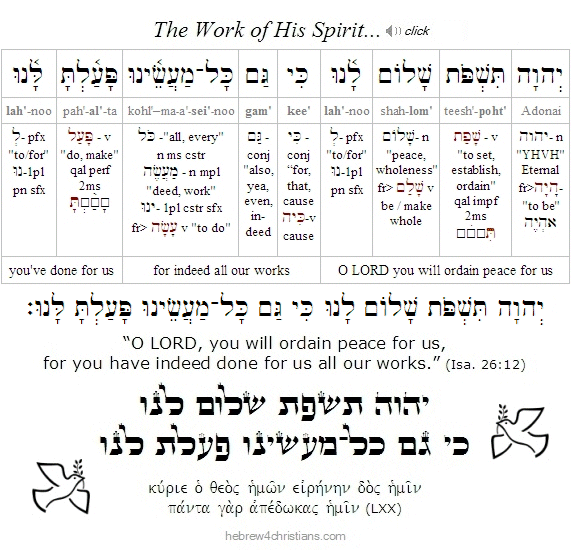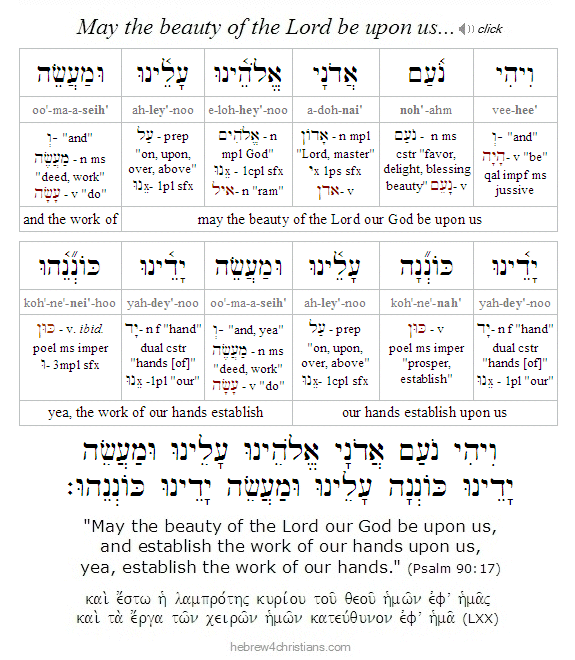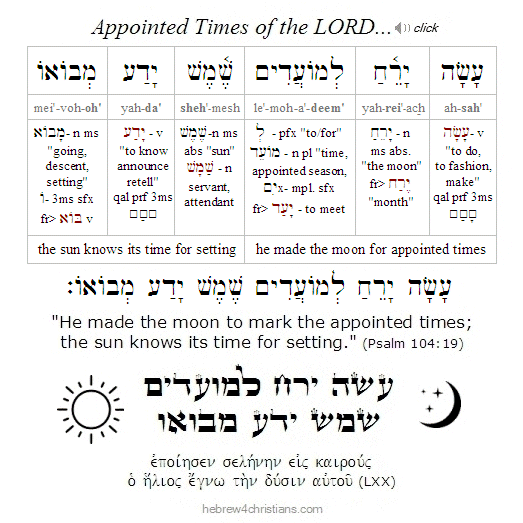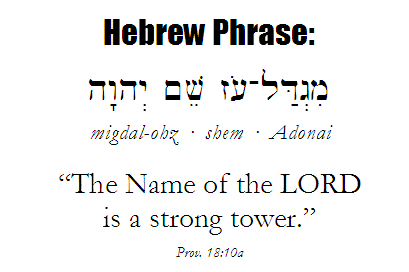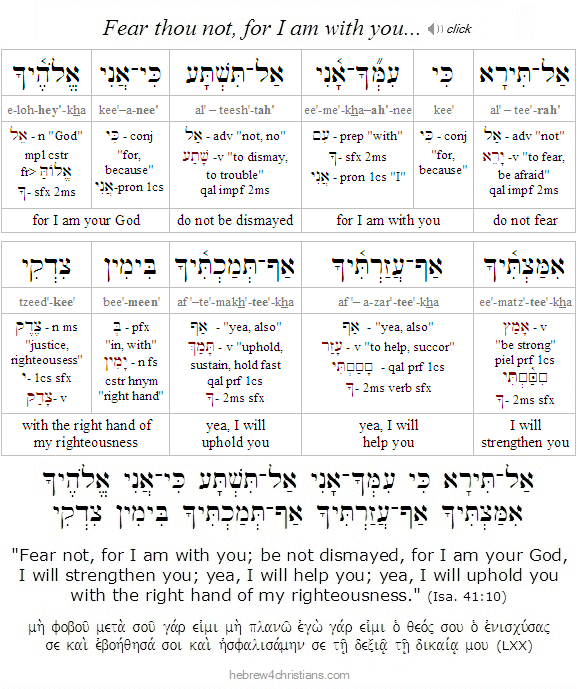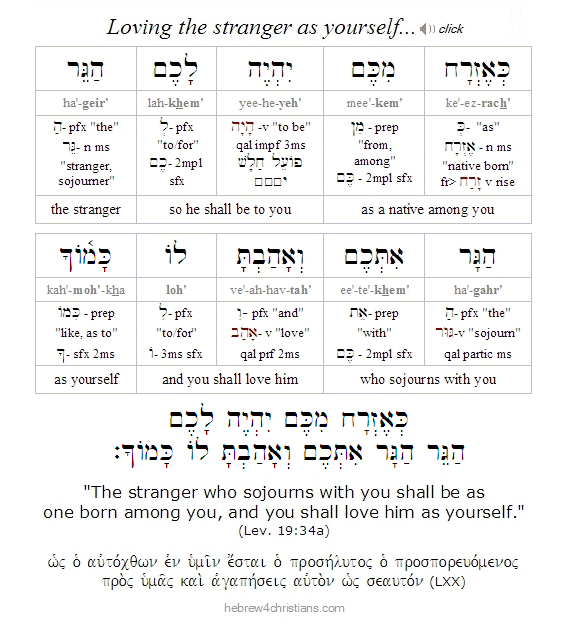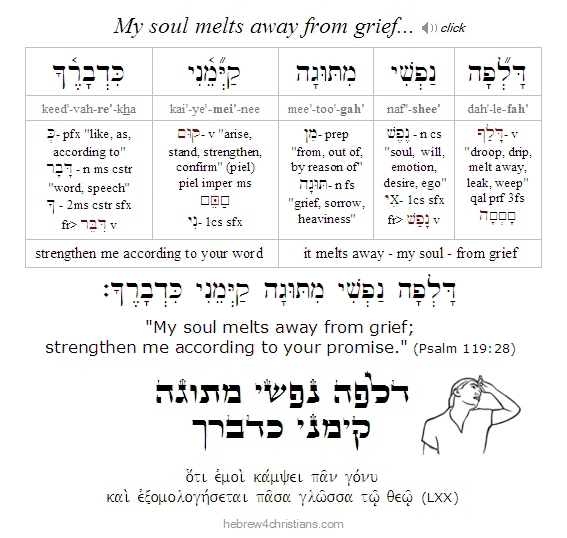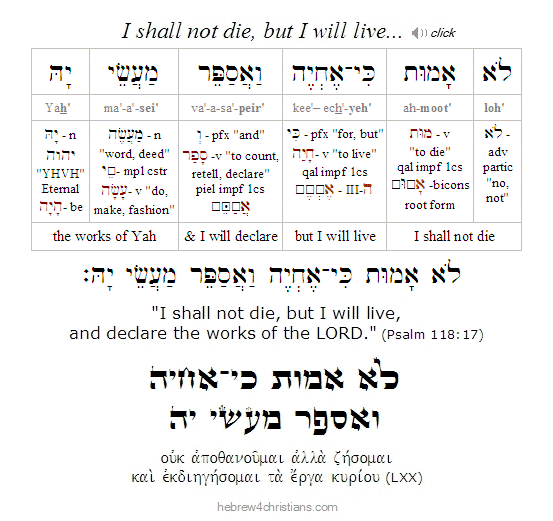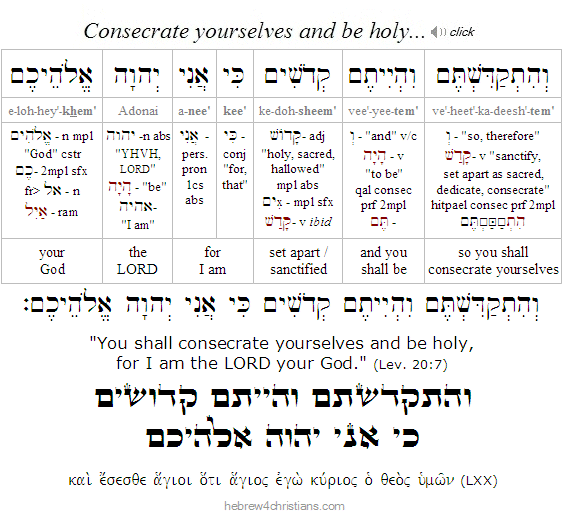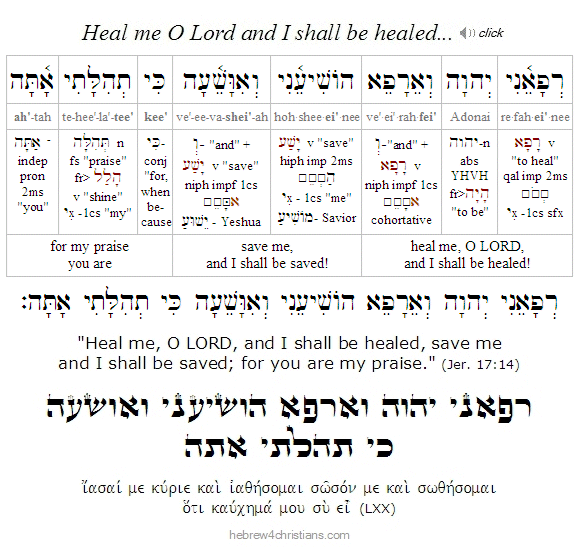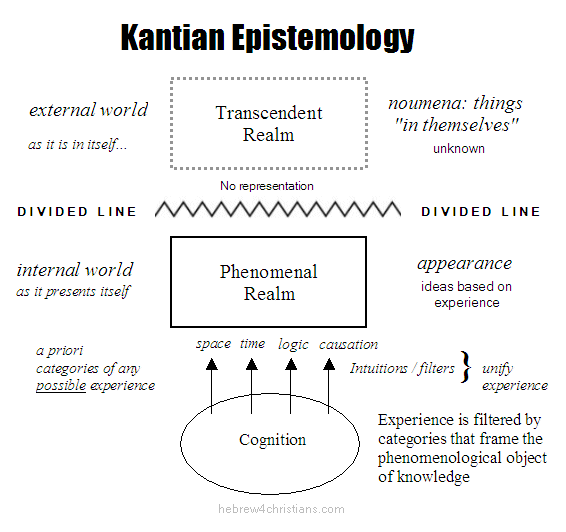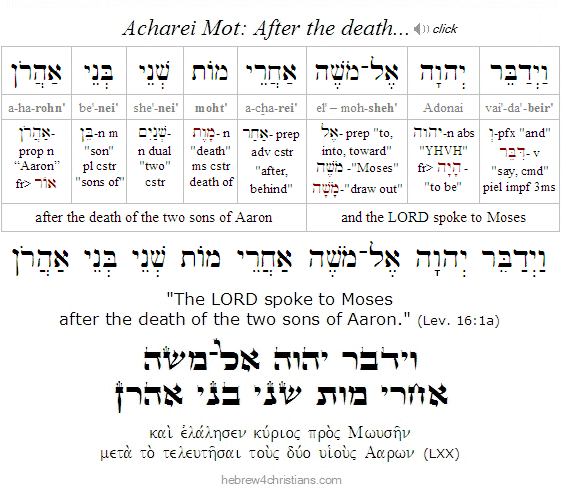|
May 2024 Updates (continued)
Note: If any page content appears to be missing, please refresh the page...
Counting the Cost...
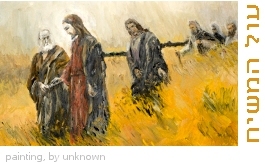
"Salvation is free, but discipleship will cost you your life." - Bonhoeffer
05.09.24 (Iyyar 1, 5784) What is your life apart from knowing the truth of Yeshua? What gets you up in the morning? What motivates your will to live? Test yourself. Reflect on your inner life and "heartstrings." What concerns you most throughout the day? What do you spend the most time doing? Where is your focus? Where are you hoping to go? How does what you do reveal what you believe is most important for your life?
Yeshua says "without me you can do nothing" (John 15:5) and yet we often go about our day as if we can do most things on our own... Oh we may give lip-service and hum the old hymn "All we need is Jesus," but we often assume we are "walking the walk" until we discover that we really can't help ourselves, that we are out of control, and that we our own worst enemy. And yet this revelation is a blessed essential: "without me you can do nothing." There is nothing so cunning as the damnable idea that "God helps those who help themselves." No, it's just the opposite. God helps those who cannot help themselves, and that's gospel truth....
It is a paradox that we "find ourselves" only as we lose ourselves. As Yeshua said: "The one who finds his life will lose it, and the one who loses his life for My sake will find it (Matt. 10:39). Or put it the other way around: "The one who loves his life will lose it, and the one who hates his life in this world will keep it for eternal life" (John 12:25). It is a special blessing to "lose it" and feel undone, for then we become more willing to let go of what makes us sick. "Unless a seed of grain falls to the earth and dies, it abides alone..."
But how do we get to this point? How can we be delivered from the "disordered loves" and misguided affections that beguile us into believing we can find life in the world? How can we stop loving what is evil? How can we stop wanting what we want? Are we responsible for finding ourselves? Or is it our duty to hate our lives in this world in order to attain eternal life? Do we "mortify" ourselves by asceticism or perhaps seek "nirvana" by denying who we are?
There is cause and effect in the realm of the spirit as much as in the physical world, and I think that Yeshua is saying that true life is the effect of his Presence within the heart of faith, that is, within the heart that has realized (by grace alone) that He alone is the greatest blessing and deepest desire of life. It is the Presence of the Lord that makes all the difference...
"Whoever does not bear his cross and come after Me cannot be My disciple." What does this mean? Is Yeshua saying that you must carry your burdens and suffer to be his disciple? Not at all, but rather he is saying you must be willing to die to yourself, to "be crucified" in your abandonment and surrender to the Lord as your ultimate good. It is a question directed to your heart and will. Are you willing to give up everything to follow Yeshua? Do you really believe that he is "the way, the truth, and the life" for you?
In the Scriptures we read about "being crucified with Christ" or "having died with Christ" (i.e., Gal. 2:20, Col. 3:3; Rom. 6:3-11). This identification with Yeshua is a spiritual truth that must be accepted by faith. It is not something you do. You were not literally crucified with Messiah of course, but you receive his death benefits by trusting that he identified with you as he offered up his life on the cross for the healing of your life... It is a mutual identification, if you will, though Yeshua's identification with you is primary and essential for your identification with Him.
You will never be able to do any of this in your own strength. You cannot save yourself. It is a miracle from above that true life comes to the dead heart (John 3:3-7). How can you be willing to "die to yourself" and completely surrender to God apart from a miracle? Apart from a radical encounter? Apart from the regeneration and newness of life that only comes through Yeshua? If you were able to heal yourself, why would you need the medicine of the gospel?
Yeshua said: "Whoever does not bear his own cross and come after me cannot be my disciple. For which of you, desiring to build a tower, does not first sit down and count the cost, whether he has enough to complete it? Otherwise, when he has laid a foundation and is not able to finish, all who see it begin to mock him, saying, 'This man began to build and was not able to finish.' Or what king, going out to encounter another king in war, will not sit down first and deliberate whether he is able with ten thousand to meet him who comes against him with twenty thousand? And if not, while the other is yet a great way off, he sends a delegation and asks for terms of peace. So therefore, any one of you who does not renounce all that he has cannot be my disciple" (Luke 14:27-33).
Now this passage teaches we must count the cost of what it means to be a genuine disciple. Of course discipleship is not literally about building towers or deliberating like a king whether to engage in battle or not, but it does involve the exercise and decision of the will to attain a desired outcome. True discipleship to Yeshua requires "renouncing" or forsaking every other relationship or interest for the sake of knowing him. He can only be known by worship. Therefore Yeshua says, "If anyone comes to me and does not hate his own father and mother and wife and children and brothers and sisters, yes, and even his own life, he cannot be my disciple, and, whoever does not bear his own cross and come after me cannot be my disciple" (Luke 14:26). Using strong contradistinction, Yeshua says that it's as if we are to "hate" everything in comparison to the blessed glory of knowing him, and that includes not only our various aspirations and hopes, but even our dearest interpersonal relationships....
Now while it's true that you should indeed count the cost of being a disciple, it is important to realize that your salvation was secured by Yeshua alone. His entire ministry was the true cost paid to save you from yourself. He lived a life of suffering and utter surrender in obedience to the Father. He willingly offered himself upon the cross and there made particular intercession for you. Yeshua knows the cost of building the tower and waging the king's war. And he also knows your human heart; he knows your frame, that you are but dust (Psalm 103:14). Yeshua indeed counted the cost and was able to finish the work of salvation given on your behalf. Satan can never mock or gainsay His work...
Still there is a cost for the genuine disciple, and that is the joyful response of the heart that accepts God's provision and blessing by faith. It is the "cost" incurred by selling everything you have to buy land with hidden treasure, or to attain the superlative pearl of great price....
This is the meaning of bearing the cross - intimately identifying with the great love of God given in Yeshua, partaking in his sacrifice, and dying to all other worldly affections in order to love God "be'khol levavkha, uv'khol nafshekha, uv'khol me'odekha" - with all your heart, soul, and being - not because of what you can do or who you are but because of what Yeshua has done and who He is.
Beware of those who claim to be doing a great work for God! No, we never can work for God though we can yield ourselves to him so fully that he lives within our heart and manifests his presence despite our frailties...
It is a daily decision to "forsake all that you have" to be a disciple of Yeshua, but our Lord calls us to himself: "Come to me, all who labor and are heavy laden, and I will give you rest. Take my yoke upon you, and learn from me, for I am gentle and lowly in heart, and you will find rest for your souls. For my yoke is easy, and my burden is light" (Matt. 11:28-30).
There are two relationships you will have in your life that will last forever. The first is the relationship you have with yourself, and the other is the relationship you have with God. However, since you cannot truly relate to yourself apart from God, your relationship with Him is basic to any other relationship in your life, including the relationship you have with yourself. You "deny yourself" not by abstemious sanctity as much as by focusing on what matters most. "Seek ye first the kingdom of God" and all the rest will take care of itself.
"Blessed are those who hunger and thirst for righteousness..." (Matt. 5:6). Yes, blessed are those who suffer such desperate need, who know inner emptiness, who are not made numb to the ache, and who cry from the heart for deliverance. Blessed are those who are in dread over themselves, who fall as one dead before the Divine Presence, who know they are undone, ruined, and dying for life... The great danger, spiritually speaking, is to become complacent, untouched by poverty of heart, to be lulled asleep, lost within a dream, made comatose, living-yet-dead. The blessing of faith first reveals our own lostness and then imparts courage to live with ourselves despite ourselves as we focus on God's love, healing and life... Count the cost of His sacrifice and treasure it as the greatest gift He has given you. The cost of discipleship is the "burden" of his love you carry within you...
Hebrew Lesson
Isaiah 26:12 reading (click for audio):
A Living Faith...
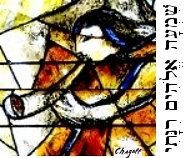
05.08.24 (Nisan 30, 5784) Chodesh tov, chaverim. We read in our Torah this week (Kedoshim): "You shall keep my decrees and my judgments, the pursuit of which man shall live: I am the LORD" (Lev. 18:5). The Kotzker Rebbe advised reading this verse as "You shall keep my decrees and judgments to bring life into them," meaning that we should bring all our heart, soul, and strength into the teaching of Torah. The commandments nourish the soul as food does the body. Just as we seek to season our food to make it flavorful, so we seek to observe the truth with conviction and joy.
"All things that are exposed are made manifest by the light, for whatever makes manifest is light. Therefore He says: "Awake, you who sleep, arise from the dead, and Messiah will give you light. Therefore be very careful how you live – not as unwise but as wise, but redeem the time, because the days are evil." (Eph. 5:13-16)
Amen. "May the beauty of the LORD our God be upon us: and establish the work of our hands upon us; yea, establish the work of our hands" (Psalm 90:17).
ויהי נעם אדני אלהינו עלינו
ומעשׂה ידינו כוננה עלינו
ומעשׂה ידינו כוננהו
vee·hee · noh'·am · Adonai · e·loh·hey'·noo · ah·ley'·noo
oo·ma·a·seh · yah·dey'·noo · koh·ne·nah · ah·ley'·noo
oo·ma·a·seh · yah·dey'·noo · koh·ne·nei'·hoo

"May the beauty of the Lord our God be upon us,
and establish the work of our hands upon us;
yea, establish the work of our hands."
(Psalm 90:17)
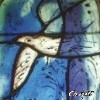
Hebrew Lesson:
Psalm 90:17 reading (click):
The Month of Iyyar...
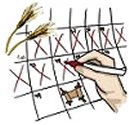
05.08.24 (Nisan 30, 5784) On the Torah's calendar, the month of Iyyar falls between the great month of redemption (i.e., Chodesh Yeshuah, or "Nisan") and the third month of revelation (Sivan), and is therefore primarily regarded as a "month of passage" to prepare us for the revelation given at Sinai and later, at Zion (i.e., Shavuot or "Weeks," or "Pentecost"). Every day of this new month is counted in anticipation of the climactic jubilee of Shavuot. Rosh Chodesh is celebrated for two days on months with just 29 days, so it will begin a day "early" for Iyyar, that is, on Nisan 30, which this year began Tuesday May 7th at sundown.
יְהִי רָצוֹן מִלְּפָנֵיךָ יהוה אֱלהֵינוּ
וֵאלהֵי אֲבוֹתֵינוּ שֶׁתְּחַדֵּשׁ עָלֵינוּ חדֶשׁ טוֹב
בַּאֲדנֵינוּ יֵשׁוּעַ הַמָּשִׁיחַ אָמֵן
ye·hee · rah·tzon · meel·fah·ne'·kha · Adonai · E·loh·hey'·noo
vei·loh·hey · a·voh·tey'·noo · she·te·cha·deish · ah·ley'·noo · choh·desh tohv
ba'a·doh·ney'·noo · Ye·shoo'·a' · ha·mah·shee'·ach · ah·mein

"May it be Your will, LORD our God and God of our fathers,
that you renew for us a good month in our Lord Yeshua the Messiah. Amen."
Shelter of Light...
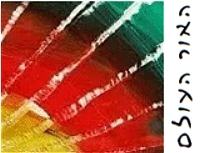
05.07.24 (Nisan 29, 5784) The news propaganda of today's mass media creates a collective sense of "derealization" that inculcates fear, suspicion, and anger in order to destabilize targeted population subgroups with the goal of justifying tighter authoritarian controls... Today more than ever we must pray to be delivered from the matrix of lies that defines this age (עולם השקר) and to be transformed by the renewing our hearts and minds (Rom. 12:2).
The sages say, "in the world to come (הַעוֹלָם הַבָּא), God will bring the sun out of its sheath to burn the wicked; they will be judged by it, but the righteous will be healed by it' (Shemot Rabbah). Amen. Yeshua is compared to the "Sun" because as the Sun is the central luminous body of our world, so Yeshua is called the "Light of Life" (אוֹר הַחַיִּים). Yeshua is melech ha'kavod (מֶלֶךְ הַכָּבוֹד), "the King of Glory" -- and no one can stand before the blinding power of His countenance (Psalm 27:4; Rev. 1:8-19). His is the "Fountain of Light" for all of creation, the Source and End of all life: "For by Him all things were created, in heaven and on earth, visible and invisible, whether thrones or dominions or rulers or authorities -- all things were created through Him and for Him. And he is before all things, and in him all things hold together... that in everything He might be preeminent" (Col. 1:16-18). Yeshua is the "Sun of Righteousness" (שֶׁמֶשׁ צְדָקָה) who comes "with healing in his wings" -- that is, in healing radiance, with rays and beams, which metaphorically describe His influence over the hearts of men... Note that the word for "wings" used in this passage (i.e., kanaf: כָּנָף) pictures the image of a heavenly tallit (טַלִּית), or the heavenly firmament (רָקִיעַ) of the LORD's sheltering Presence.
Amen, there is a future time of healing and deliverance coming to us, though we must abide in the shadow of its substance for a bit longer: "For behold, the Day is coming (הַיּוֹם בָּא), burning like an oven, when all the arrogant and all evildoers will be stubble. The Day that is coming shall set them ablaze, says the LORD of hosts, so that it will leave them neither root nor branch. But for you who fear my Name, the Sun of Righteousness (שֶׁמֶשׁ צְדָקָה) shall rise with healing in its wings. You shall go out skipping like calves released from the stall. And you shall tread down the wicked, for they will be ashes under the soles of your feet, on the day when I act, says the LORD of hosts" (Mal. 4:1-3).
Hebrew Lesson:
Proverbs 18:20 Hebrew reading (click):
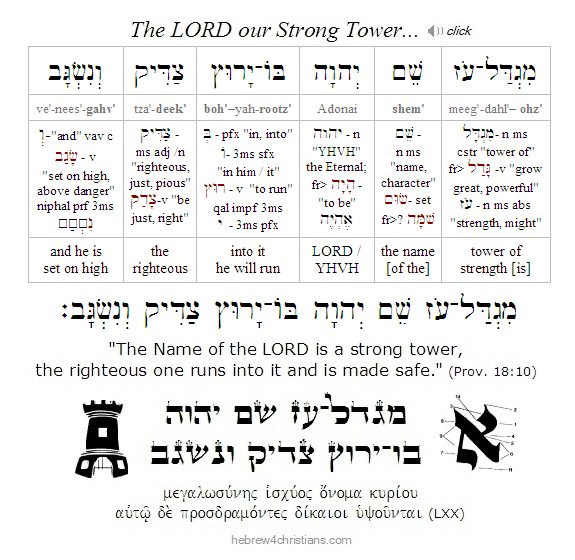 |
Acceptance and Trust...

[ The following entry reflects on Yom HaShoah and our need for endurance... ]
05.06.24 (Nisan 28, 5784) What do we do with anguish of heart? The ancient Jewish custom of keriah (קְרִיעָה), the tearing of clothes (or cutting a black ribbon worn on one's clothes) to express grief, is to be performed while standing up. The sages say this is to teach that even in time of grave testing, when we protest over loss and recoil from what God brings our way - we are to be upright, we are to meet all sorrow while standing upright. We forswear all blame and accept life on God's terms, continuing to trust in times of darkness. Even in moments of inner heartache we affirm faith in God's promises for good.
We had nothing when we were born into this world, and all that we now have was given to us by hashgachah pratit - the providential plan of God. As the LORD graciously gave, so He has the prerogative to take away. Pain, suffering, and even death itself surely do not come by accident but are rather part of the inscrutable will of God, who works all things together for the good of creation. Gam zu l'tova – this too is "for the good," even if the good is not revealed in the moment. Job refused to blame God for his troubles, but instead he understood that whatever God does (or allows) must itself good, and there is no reason to doubt this, even if in the present there is tribulation – indeed, even the throes of death. "Every good gift and every perfect gift is from above, coming down from the Father of the heavenly lights, with whom there is no variation or shadow due to change" (James 1:17). As it is written, lo yimna-tov laholekhim be'tamim (לא יִמְנַע־טוֹב לַהלְכִים בְּתָמִים), "no good thing does he withhold from those who walk in completeness" (Psalm 84:11), and you are made complete (תָּמִים) because of the finished work of Messiah on your behalf. Do not be afraid of His providence: no good thing will the LORD withhold from you...
We cannot escape suffering in this life, but God gives us heart to face the struggle. Each day contains the opportunity to serve God even in the midst of trouble (Matt. 6:34). We cannot control much of what happens to us in this life, so our task is to sanctify time and trust that God will see to our true needs. Taking refuge in God means personally trusting in His goodness for your soul, despite circumstances that might tempt you to lose heart. al evosh, ki chasiti vakh - "Let me not be ashamed, for I put my trust in You" (Psalm 25:20).
Hebrew Lesson:
Psalm 25:20 Hebrew reading (click):
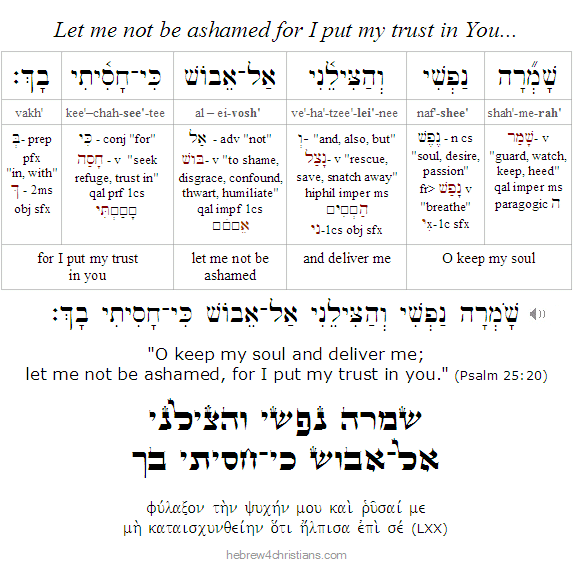 |
Deliver Us from Ourselves...

05.06.24 (Nisan 28, 5784) Holocaust survivor Viktor Frankl wrote, "No man should judge unless he asks himself in absolute honesty whether in a similar situation he might not have done the same" (Man's Search for Meaning, 1946). As Carl Jung expostulated, there is a "shadow" or darker side to ourselves that we normally keep hidden from view, even from ourselves. Yeshua said "out of the heart come evil thoughts, murder, adultery, sexual immorality, theft, false witness, slander, and these are what defile a person" (Matt. 15:19-20). Yet we often deny our own darkness. If you were given a magic ring which when placed on your finger made you invisible, would your behavior change? Would you be completely moral if you were entirely sure that you wouldn't be held accountable? (see The Republic: Ring of Gyges). Why is it difficult to understand our true motives and to "own" the darker impulses that sometimes rise within us? Each of us can act like a Pharaoh, and - dare I say it - even like a cruel Nazi at times, blaming others to pardon our own evil ways... When we come to the light to confess the truth, we become more aware of what we really need, and we can then ask God for healing; we then can forgive ourselves and begin to "lift off" our stuff from others.
Hebrew Lesson:
Jer. 17:9 reading (click):
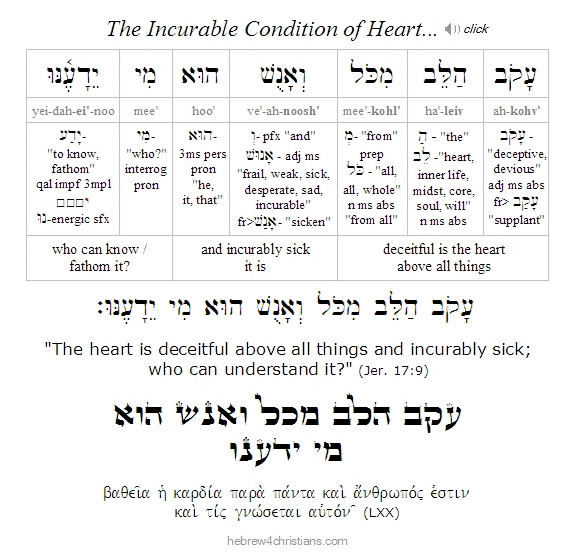 |
"The heart is deceitful above all things, and incurably sick - mi yadeinu? - who can understand it?" (Jer. 17:9). But how is the heart sick? Primarily by seeking to evade the truth of its great need; by denying its own inner poverty... "No person is saved except by grace, yes; but there is one sin that makes grace impossible, and that is dishonesty; and there is one thing God must unconditionally require, and that is honesty" (Kierkegaard).
Julian of Norwich said, "All shall be well, and all shall be well and all manner of thing shall be well," and yet the darkest pitch of depression is precisely the inability to take hold of such hope... Faith in the midst of darkness must yet affirm that despite own sin, our own wretchedness, nothing will hinder nor overcome the working of God's goodness... Amen, and may God help us believe, despite our unbelief (Mark 9:24).
Evil and Social Fascism...
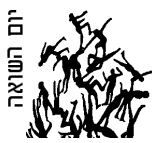
[ Dostoevsky's dictum, "If God does not exist, then everything is permissible" has become a truism in decadent Western culture. As Nietzsche said, "God is dead and we have killed him." Social engineers have long sought for such anarchy, and the whirlwind is now upon us... ]
05.06.24 (Nisan 28, 5784) Today marks Yom HaShoah, or "Holocaust Remembrance Day," which again provides us with an opportunity to ask some difficult questions about the nature of evil, and in particular, the nature of political evil, and how it is possible that such evil is at first tolerated by society and then somehow justified to establish and sustain a culture of fear and oppression that leads eventually to the utter madness of genocide...
A typical refrain heard at this time is Le'olam lo od - "Never again! Le'olam lo od - "Never again!" and yet it needs to be emphasized that not only could the madness of Nazi socialist fascism happen again, it is indeed already here, since the same dialectical mechanisms of social fascism are clearly at work in the world today - though in today's techno-fascist world the propaganda is global in scope, the scripted disinformation and cognitive dissonance are broadcast across cultures as a call for "unity," and the lockdown mindset is now ubiquitous... People have become self-censoring and the "cancel culture" suppresses freedom of thought and speech. "Groupthink" and sound bites have supplanted clear thinking and logical reasoning. You are now tagged as an enemy of the state if you dare question the official narrative or raise honest questions regarding the "science" that is used to justify the extreme measures of social control we are seeing today... The Vaccine Passport is the "Yellow Star" of today; those who do not "show their papers" will be either sent to "reeducation camps" or so ostracized that they will be unable to buy or sell in the globalist dystopian economy to come...
How did this happen? Why did people around the world surrender their God-given ability to use logic, to ask questions, and to seek for truth? What agitated the masses of humanity to abandon their personal freedoms for the sake of mere rumors and "politically manufactured" science? The answer, of course, is the power of the "Big Lie," the tactic that evil people have used for several centuries to foment disorder and insurrection - and then seize power. When asked how it was possible that they basically ignored the Jewish Holocaust, one man replied, "We all knew. Nobody knew." Today we see it in the threats of violence created by various "community organizers," in the "Antifa" movements funded by George Soros, and in Saul Alinsky's "Rules for Radicals" that even a former president studied so well...
Alinsky wrote: "[You must help] the people in the community ... feel so frustrated, so defeated, so lost, so futureless in the prevailing system that they are willing to let go of the past and chance the future. [An] organizer must shake up the prevailing patterns of their lives – agitate, create disenchantment and discontent with the current values, to produce, if not a passion for change, at least a passive, affirmative, non-challenging climate. [You must] fan the embers of hopelessness into a flame of fight" (Alinsky: Rules for Radicals). That's the recipe to create a "new world" according to many "community organizers." Create a sense of victimization to destroy the old order; rewrite the narrative of history; and then go on to enslave once again. What a heinous way of thinking...
Read this excerpt from the book "They Thought They Were Free, The Germans, 1933-45" by Milton Mayer (University of Chicago Press):
"What happened here was the gradual habituation of the people, little by little, to being governed by surprise; to receiving decisions deliberated in secret; to believing that the situation was so complicated that the government had to act on information which the people could not understand, or so dangerous that, even if the people could not understand it, it could not be released because of national security. And their sense of identification with Hitler, their trust in him, made it easier to widen this gap and reassured those who would otherwise have worried about it.
This separation of government from people, this widening of the gap, took place so gradually and so insensibly, each step disguised (perhaps not even intentionally) as a temporary emergency measure or associated with true patriotic allegiance or with real social purposes. And all the crises and reforms (real reforms, too) so occupied the people that they did not see the slow motion underneath, of the whole process of government growing remoter and remoter.
"You see," my colleague went on, "one doesn't see exactly where or how to move. Believe me, this is true. Each act, each occasion, is worse than the last, but only a little worse. You wait for the next and the next. You wait for one great shocking occasion, thinking that others, when such a shock comes, will join with you in resisting somehow. You don't want to act, or even talk, alone; you don't want to 'go out of your way to make trouble.' Why not?—Well, you are not in the habit of doing it. And it is not just fear, fear of standing alone, that restrains you; it is also genuine uncertainty.
Uncertainty is a very important factor, and, instead of decreasing as time goes on, it grows. Outside, in the streets, in the general community, 'everyone' is happy. One hears no protest, and certainly sees none. You know, in France or Italy there would be slogans against the government painted on walls and fences; in Germany, outside the great cities, perhaps, there is not even this. In the university community, in your own community, you speak privately to your colleagues, some of whom certainly feel as you do; but what do they say? They say, 'It's not so bad' or 'You're seeing things' or 'You're an alarmist.'
And you are an alarmist. You are saying that this must lead to this, and you can't prove it. These are the beginnings, yes; but how do you know for sure when you don't know the end, and how do you know, or even surmise, the end? On the one hand, your enemies, the law, the regime, the Party, intimidate you. On the other, your colleagues pooh-pooh you as pessimistic or even neurotic. You are left with your close friends, who are, naturally, people who have always thought as you have" (Chapter 13, "But Then It Was Too Late" Mayer: 1955).
The Holocaust was the result of cowardice and self-deception... The systematic, institutionalized, and "politically correct" genocide of the Jewish people was made possible solely because so many others - including nominal "Christians" - forfeited their God-given responsibility to live as authentic individuals by passively surrendering their will to "the crowd." But giving up your identity to join a gang inevitably leads to fragmentation of the soul, potentially inviting in a "legion of demons..." Regardless of whether it's a gang of thugs running an inner city neighborhood, or the pressure to keep quiet over ethical misconduct at your place of work, or the desire to feel "approved" as a good citizen of the state, or even the pressure to conform to a particular religious group, in either case, "losing yourself" in the midst of the crowd is an evasion, a cop-out, and a desecration of the image of God within you. Indeed following the crowd is a form of slavery where you surrender your freedom for the sake of a supposed sense of security... You become self-deceived because you no longer "own" yourself but became the ward of "another." Becoming a member of a crowd makes you into a copy or similitude, a shadow rather than a person of substance.
Popular leaders know how to work and bribe the crowd - whether they are big business leaders, professional politicians, or leaders of large religious organizations. Often they have the charisma that appeals to human vanity and oratory to "tickle the ears" of those who hear them speak. Politicians and "community organizers" understand how the crowd marginalizes the individual, how the voice of reason and conscience are suppressed, thereby eradicating the conviction and character of the solitary individual. Therefore the true prophet is always "a voice crying in the wilderness," an outsider to the crowd, always in collision with the world and its devices. The crowd-pleaser, on the other hand, carefully crafts his words for the applause of the mob. The crowd-pleaser is a flatterer and therefore the very antithesis of the prophet. Politicians and demagogues are masters at appealing to the gut instincts and lusts of a crowd, and therefore they are inveterate liars. They entice subgroups to follow their directives, to form self-regulating gangs, and to reward those who unquestioningly accept their "group-think." Leaders of the crowd invariably "see past" the individual and regard only numbers, general popularity, special interests, and the abstract role of "the people" in general. They justify their fascist thinking by making appeals to "the greatest good for the greatest number of people" and therefore sacrifice the dignity of the individual for the sake of the herd they wish to control...
The Kingdom of heaven is nothing like this at all, of course. Yeshua said: "You know that the rulers of the Gentiles lord it over them, and their 'great ones' exercise authority over them. It shall not be so among you. But whoever would be great among you must be your servant, and whoever would be first among you must be your slave" (Matt. 20:25-27). This is a call to recognize the sanctity of the lowly individual, to turn away from the evil vanity and abstractions of "political power" and worldly honor. As C.S. Lewis once remarked: "There are no ordinary people. You have never talked to a mere mortal. Nations, cultures, arts, civilizations - these are mortal, and their life is to ours as the life of a gnat. But it is immortals whom we joke with, work with, marry, snub and exploit - immortal horrors or everlasting splendors" (Weight of Glory: 1949).
Hebrew Lesson
Job 13:15 reading (click):
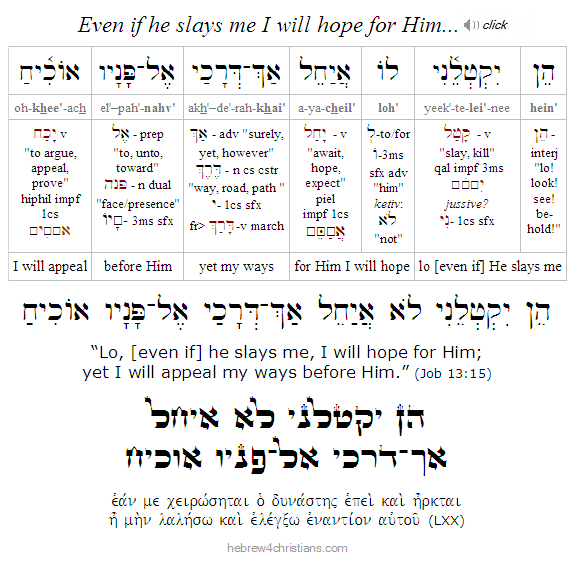 |
This week's Torah:
Kedoshim - פרשת קדשים
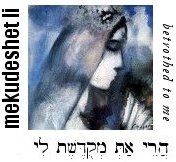
[ The following is related to this week's Torah reading, parashat Kedoshim... ]
05.06.24 (Nisan 28, 5784) Last week's Torah portion (Acharei Mot) discussed how the yearly Yom Kippur service (עבודת יום כיפור) would (provisionally) purge the uncleanness and sin of the people and restore the Sanctuary to a state of purity. This week's Torah portion (Kedoshim) continues the theme of purity with the LORD saying to "the whole assembly of Israel" (כָּל־עֲדַת בְּנֵי־יִשְׂרָאֵל), "You must be holy (or sacred) because I, the LORD your God, am holy" (Lev. 19:2). Indeed this portion lists more mitzvot (commandments) regarding practical ethics (musar) than any other of the Torah, thereby directly connecting the holiness of the community with obedience to God's moral truth...
Hebrew Lesson
Lev. 19:2b Hebrew reading (click):
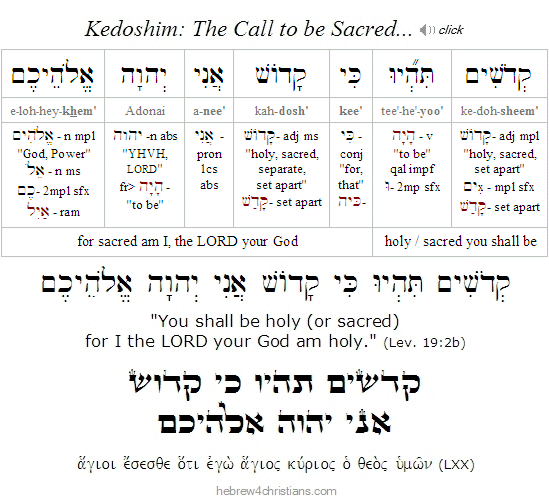 |
After stating the foundational requirement to be holy, the LORD begins to explain, "Each of you must respect (i.e., yirah: יִרְאָה) his mother and his father, and you must keep my Sabbaths. I am the LORD your God" (Lev. 19:3). The duty to revere (or honor) one's parents recalls the Fifth Commandment (Exod. 20:12), which is the starting point of learning to respect other people in our lives. Notice that the word for "my Sabbaths" (שַׁבְּתתַי) implies both the keeping of the weekly Sabbath as well as the "appointed times" of the LORD. As we will see, sanctifying time is a way we can express practical holiness in our lives...
Various practical commandments are given in this Torah portion through which a Jew is sanctified, or set apart to be kadosh - holy - and therefore fit for relationship with God. God is not only "wholly Other" (i.e., transcendent) but also pervades all of creation (i.e., "immanent"), and those who are called into His Presence must therefore be holy themselves. Such practical holiness results in sanctification obtained through the observance of commandments (mitzvot). These commandments include both mitzvot aseh (commandments to do something) and mitzvot lo ta'aseh (commandments to refrain from doing something). In addition, chukkim, or "statutes" are given that further separate the Jew from the customs and profanity of the surrounding nations.
For example, though it is inevitable (and psychologically necessary) that we make judgments about other people, the Torah states, be'tzedek tishpot amitekha, "in righteousness shall you judge your neighbor" (see also John 7:24), which implies that we must use the "good eye" (ayin tovah) when we think of other people. Indeed, the focal point and the very heart of what practical holiness represents is stated as ve'ahavta le're'akha kamokha - "You shall love your neighbor as yourself." Note that the direct object of the verb (ahav - to love) is your neighbor. But who, exactly, is my neighbor? Some have claimed that the word rea (neighbor) refers only to one's fellow Jew - not to others at large in the world. However this is obviously false, since the "stranger" (ger) is explicitly identified to be an object of our love (Lev 19:34). And note that Yeshua the Mashiach answered this question by turning it around. Instead of attempting to find someone worthy of neighborly love, I am asked to be a worthy and loving neighbor myself (Luke 10:29-37).
The phrase ve'ahavta le're'akha kamokha (Lev. 19:18) is considered the most comprehensive rule of conduct toward others found in the entire Torah. The Talmud (Shabbat 31a) tells the story of how Rabbi Hillel, a contemporary of Yeshua, was once challenged by a pagan: "Make me a proselyte, on the condition that you teach me the whole Torah while I stand on one foot." Hillel agreed, and while standing on one foot said, "What is hateful to you, do not do to your neighbor: that is the whole Torah and the rest is commentary; go and learn it." Yeshua likewise said, "In everything, treat others as you would want them to treat you, for this is the point of the law and the prophets" (Matt 7:12). The apostle Paul - who was a student of Hillel's grandson Gamaliel - likewise wrote: "Love (ἡ ἀγάπη) does no wrong to a neighbor; therefore love is the fulfillment (πλήρωμα) of the law" (see Rom. 13:10, Gal. 5:14).
Notice that the commandment to love our neighbor is given in connection with forgiveness. Leviticus 19:18 reads, Lo tikom, ve'lo titor (לא־תִקּם וְלא־תִטּר): "You must not take vengeance nor bear a grudge ... but you must love your neighbor as yourself. I am the LORD." In Jewish tradition, "Yom Kippur does not atone until we have made peace with one another." In light of the greater glory of the New Covenant, this may be stated, "the Cross of Yeshua will not avail you unless you are willing to forgive others for their sins against you" (Matt. 6:14-15).
The problem, of course, is not that we don't know what our duty before God is, but rather finding the means to truly live a life of love and forgiveness toward others in this fallen world... But thanks be to God - the Holy Spirit enables us to do the impossible...
Not the Author of Chaos...
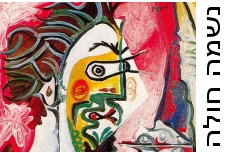
[ Those who deny the truth of God and God's law, those who arrogate the "right" to define what is good and evil on their own terms, repudiate the Voice and Person of the One who said: לֹא תִּרְצָח - "Thou shalt not murder." Their judgment is the insanity of their own arrogance... ]
05.05.24 (Nisan 27, 5784) These are lawless days, where worldly culture celebrates moral anarchy and teaches the narcissistic philosophy that everyone "should" do what is right in his or her own eyes... These are like the "days of Noah," where the wickedness has become great in the earth, and intention of the thoughts of people's hearts has become evil continually (Gen. 6:5). Because worldly culture has suppressed and exiled the truth of God from the public domain, God has pronounced "like-for-like" judgment by giving people over to the tyranny of their darkened passions, resulting in inner chaos and self-destructive impulses. This is the very worst possible judgment of God - when He removes his hand and says, "Have it your way..." (Rom. 1:28). We now live in a stupefied age wherein people are unable to think clearly or use logic, but instead resort to violence and ad hominem attacks on others because of their derranged thinking and hardened hearts...
The importance of the Torah, or the "law" of God, cannot be overstated, friends. Yeshua plainly said to his followers: "Do not think that I have come to abolish the Law or the Prophets; I have not come to abolish them but to fulfill them. I tell you the truth, until heaven and earth pass away not the smallest letter or even a stroke of a letter (קוצו שׁל יוד) will pass from the law until everything comes to pass. So anyone who breaks one of the least of these commands and teaches others to do so will be called least in the kingdom of heaven, but whoever obeys them and teaches others to do so will be called great in the kingdom of heaven" (Matt. 5:17-19). He further solemnly warned: "Not everyone who says to me, 'Lord, Lord,' will enter into the kingdom of heaven– only the one who does the will of my Father in heaven. On that day, many will say to me, 'Lord, Lord, didn't we prophesy in your name, and in your name cast out demons and do many powerful deeds?' Then I will declare to them, 'I never knew you. Go away from me, you workers of lawlessness' (Matt. 7:21-23).
To the ungodly, "freedom" means being lawless, that is, acting under their own authority apart from the will of God. Their "law" is one of unbridled selfishness: "Do what thou wilt." This of course was the original temptation in Eden, when the nachash (serpent) told Eve that if she acted under her own authority, her eyes would be "opened" and she would be "like God," knowing both good and evil (Gen. 3:5). That is always the creed of the wicked: "Do as thou wilt..." True freedom, however, is not the supposed right to do whatever you want, but instead is the power to do what is right, living in harmony with moral reality, and being liberated from the slavery of impulses to do evil. The moral law of God, then, is the blessing of having boundaries, order, and moral sanity within our lives, and that is why the Holy Spirit inscribes the law "within" us - to help guide our steps, protect our way, and to empower us to live in obedience to the truth of God (Jer. 31:33). If you are led by the Spirit, you are no longer enslaved to the law of sin and death -- that is, the lower nature and its idolatrous impulses -- but you will bear the fruit of righteousness, goodness and truth (Gal. 5:18; Eph. 5:9). Let no one deceive you with vain words. "By this it is evident who are the children of God, and who are the children of the devil: whoever does not practice righteousness is not of God, nor is the one who does not love his brother" (1 John 3:10).
Hebrew Lesson:
Psalm 119:97 reading (click for audio):
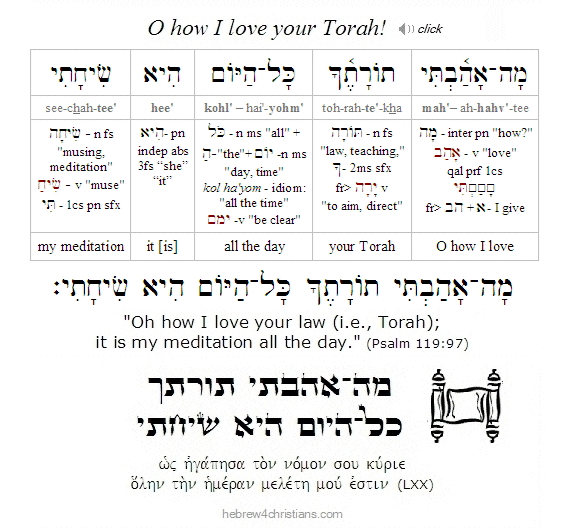 |
Beauty for Ashes...
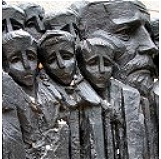
[ Yom HaShoah, Holocaust Remembrance Day, begins this evening at sunset. לעולם לא עוד ]
05.05.24 (Nisan 27, 5784) While there is no official "haggadah" for the Yom HaShoah memorial, it is traditional to light a yellow yahrzeit candle for those who died, to attend a Yom HaShoah memorial service, and to recite kaddish. Some people prepare a lavish meal using recipes written from memory by the starving women of Theresienstadt (salvaged after the war). Many of these recipes are for rich desserts and cakes, recalling days of joy before the women and their families were rounded up and brought to the concentration camps. During the memorial meal, stories of Jews who died are told, as well of those of survivors. Many survivors tell stories about the "hidden children" who were saved by righteous Gentiles (חֲסִידֵי אוּמוֹת הָעוֹלָם). These young survivors were either hidden in secret places (like Anne Frank) or were "adopted" by Christian families who pretended they were their own children.
Though we can't control what happens in this dangerous world, we can trust that God is working all things together for good, even during times of severe testing, and even in things that are blatantly evil (Rom. 8:28; Gen. 50:20). And while we instinctively recoil at the prospect of physical death, there are decidedly things worse than death itself, namely, losing hope in life, walking in the darkness of despair, living a joyless existence because of fear. As much as we abhor evil - and we must resist it with all our hearts - even more must we love the good - and cling to God (וּלְדָבְקָה־בוֹ) with all that is within us.
Ultimately, the most important thing to remember regarding death is the truth about God's salvation (יְשׁוּעָה). After all, God assuredly hates death and provides each of us with its eternal remedy: By clothing himself in human flesh, Yeshua embraced mortality itself and willingly bore the penalty for your sins, exchanging his life for yours, thereby destroying the one who had the power of death, namely the devil, and by so doing, set you free from slavery to the dread of death (Heb. 2:14-15). To those who belong to belong to Messiah, death represents a passage to eternal life and the loving presence of God Himself.
Only the miracle of faith can see hope in the face of radical evil... and yet that is the very message of the cross of the Messiah... Our Lord demonstrated that He is the the Killer of death itself; the Slayer of the Serpent; and the ultimate Triumph of God's Light over the realm of despair and everlasting darkness... He is the First and the Last, the Living One who died, and behold is alive forevermore, the true Keyholder of Death and Hell (Rev. 1:18).
For more on this topic see: "Beauty for Ashes: Further thoughts on the Shoah."
Hebrew Lesson:
Psalm 18:28 reading (click):
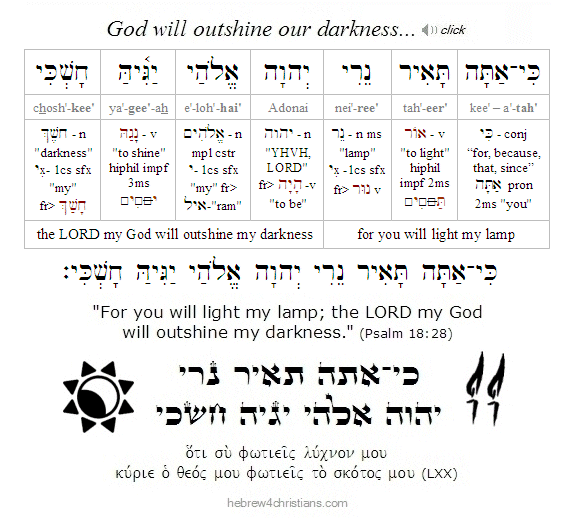 |
Keep the Flame Burning...
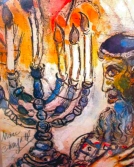
[ "Faith is the strength by which a shattered world shall emerge into the light." - Helen Keller ]
05.03.24 (Nisan 25, 5784) Keep the flame within your heart burning, friend... A sage once told a person struggling with his faith: "It is written that all creation was brought into being because of people like you. God saw there would be people who would cling to our holy faith, suffering greatly because confusion and doubt would plague them. God perceived that such would overcome these doubts and troubles of heart and remain strong in their belief. It was because of this that God brought forth all creation." Indeed, it was because of this that Yeshua our LORD suffered and died for you... Amen. Therefore never yield to despair, since that leads to further darkness and fear. Press on and keep fighting the "good fight" of faith (1 Tim. 6:12). Remember that you infinitely matter to heaven; your life has great value; you are significant and you are truly loved by our Heavenly Father. There is a "future and a hope" for you; there is "a white stone, and on that stone will be written a new name that no one can understand except the one who receives it" (Rev. 2:17). May "the trial of your faith, being much more precious than of gold that perishes, though it be tested with fire, be found to result in praise and glory and honor at the revelation to come" (1 Pet. 1:7).
"I am sure of this, that he who began a good work in you will bring it to completion (ἐπιτελέω) at the Day of Yeshua the Messiah" (Phil 1:6). The LORD is able to guard you (φυλάξαι) from stumbling and to present you blameless before the presence of His glory with great joy (Jude 1:24). "The LORD upholds all who are falling and raises up all who are bowed down" (Psalm 145:14). "He will sustain you to the end, guiltless in the Day of our Yeshua the Messiah" (1 Cor. 1:8). He who calls you is forever faithful; He will surely do it (1 Thess. 5:24). Yea, "the Lord is faithful (נֶאֱמָן הוּא): He will establish you and guard you against the evil one" (2 Thess. 3:3). The Spirit says, "Fear not, for I AM with you always."
Hebrew Lesson:
Isaiah 41:10 Hebrew reading (click):
I appreciate this quote from the late Frederick Beuchner: "To be commanded to love God at all, let alone in the wilderness, is like being commanded to be well when we are sick, to sing for joy when we are dying of thirst, to run when our legs are broken. But this is the first and great commandment nonetheless."
It is true; we cannot possibly love God with all our hearts apart from a miracle of personal encounter with the risen Lord who calls us to know Him.
Human pride looks for reasons why God would reveal himself to us; it assumes there is something about us that commends his love. But the miracle of faith is a gift from above, since the only thing we can offer God is our need, our brokenness, and our powerlessness.
Some people trust in religion, but what matters most is disclosed as you lay dying on your bed, in your most needy moment for the intervention of God's grace. Is it not precisely then that when all human hope is lost, your heart reaches out to the utmost for the good Lord to come to your rescue? We are saved by hope (Rom. 8:24). אֵלֶ֥יךָ יְ֝הוָ֗ה נַפְשִׁ֥י אֶשָּֽׂא — "Unto Thee O Lord do I lift up my soul..." Amen. Bo, ruach Elohim!
 |
Loving the Stranger...
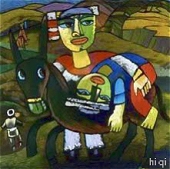
05.03.24 (Nisan 25, 5784) From our Torah portion for this week (Acharei-Mot) we read: "You shall love the stranger as yourself" (Lev. 19:34). But how is this possible apart from empathy for someone who is lost? The unspoken assumption here is that since we know how it feels to be an outsider, oppressed and without a sense of home, so we ought sympathize with others who feel that way too.
When we acknowledge the pain of others we also acknowledge our own. We let go of the weapons of blame and retribution when we give voice to the "stranger" within ourselves, when we realize that others share in our suffering: "Do not oppress a sojourner, for you know the soul of a stranger (וְאַתֶּם יְדַעְתֶּם אֶת־נֶפֶשׁ הַגֵּר), for you were strangers..." (Exod. 23:9). The Hebrew verb used here (i.e., yada, to know), implies intimacy, personal and direct understanding. You "know the soul" of the stranger by reliving their place, and by using the "good eye" to see how they share common our pain, joy, hope, and so on.
Being sensitive to the heartache of others helps us find our own healing: We are brought out of our "inner Egypt" into freedom and wholeness. Remembering what it was like to be a stranger helps us extend compassion to ourselves, and that brings healing to our hearts.
The mitzvah to love the stranger applies not only to someone whom we regard as an "outsider," but more radically to the "stranger within ourselves," that is, to those aspects of ourselves we censor, deny, or reject. Like the prodigal son, we have to "come to ourselves" to return home (Luke 15:17) - believing that we are somehow redeemable - yet we will be unable to know how we are unconditionally loved until we venture complete disclosure. That is the great risk of trusting in God's love for your soul: You must accept that you are accepted despite your own unacceptability... Those parts of ourselves that we "hide" need to be brought to the light, atoned for, healed, and reconciled. If we don't love and accept ourselves, then how can we hope to love and accept others?
Hebrew Lesson
Lev. 19:34 reading (click):
Torah of Sighs...
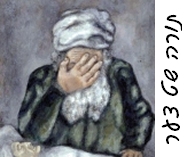
[ A sigh is a deep breath that is audibly exhaled from the depths of the soul... In modern Hebrew the word for "sigh" is "anachah" (אֲנָחָה), while in Yiddish the word "oy!" is often used, and the prophets sometimes used the word "eichah" (אֵיכָה) to mournfully moan "how can it be?" to heaven. In any case, the sigh is an essential part of the vocabulary of Jewish life. How can we not sigh in grief with the world is the way it is? And should we not sigh and groan for the completion of our redemption? (2 Cor. 5:1-6) ]
05.03.24 (Nisan 25, 5784) The Scriptures are filled with desperate cries of the heart... Ad ana Adonai: "How long, O LORD? Will you forget me forever? How long will you hide your face from me? How long must I take counsel in my soul and have sorrow in my heart all the day?" (Psalm 13:1-2). "Make haste to help me, O LORD, my salvation!" (Psalm 38:22). "My soul melts away from grief; strengthen me according to your word" (Psalm 119:28). "Answer me quickly, O LORD! My spirit fails! Hide not your face from me, lest I be like those who go down to the pit" (Psalm 143:7). God know that "hope deferred makes the heart sick" (Prov. 13:12), so there can be no turning to God, no teshuvah, apart from the presence of real hope (תִּקְוָה). Indeed, as the Apostle Paul wrote: "We are saved by hope" (Rom. 8:24).
The late Henri Nouwen wrote, "I am beginning to see that much of praying is grieving." Contrition, grief, and regret for our sins is at the heart of genuine teshuvah. Crying is a expression of utter humility, helplessness, and need. In this life we weep over many things, but we inwardly cry for our Abba, our heavenly Father's love... "Whenever you find tears in your eyes, especially unexpected tears, it is well to pay the closest attention. They are summoning you to where you should go next" (Frederick Buechner).
"Whenever you find tears in your eyes, especially unexpected tears, it is well to pay the closest attention. God is speaking to you through them of the mystery of where you have come from and is summoning you to where you should go to next. (Frederick Buechner, Whistling in the Dark: 1988).
An old Jewish prayer, uttered with a expansive sigh, begins, "O Lord, I know that Thou wilt help us; but wilt Thou help us before Thou wilt help us?" It's not always easy to wait for God, especially when we are in pain, sorrow, or anxiety, but we must never, ever, give up; we must never ever, abandon our heart's longing for ultimate healing. The "blessing of the sigh" is that it expresses the bittersweetness of our struggle and the courage of our conviction. Faith exercises hope in the Reality, Substance, and Being (ὑπόστασις) of the Invisible and is made captive to undying hope (Heb. 11:1). Therefore the Spirit cries out: "Hope to the LORD; be strong and strengthen your heart; and (again) hope to the LORD" (Psalm 27:14). "Blessed are you, O LORD, who walks with the wounded of heart."
Hebrew Lesson:
Psalm 119:28 Hebrew Reading (click):
The Heart of Atonement...
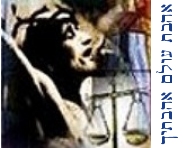
05.03.24 (Nisan 25, 5784) Most of our deepest anxieties come from the fear of death, whether we are conscious of this or not... Death represents fear of the unknown, fear of being abandoned, fear of being rejected, fear of being separated from others, and so on. I am so glad Yeshua gives us eternal life, which for me is not so much about immortality of the soul as it is being loved and accepted by God... That is what "at-one-ment" means, after all (John 17:22-23). Because God loves and accepts us, we trust Him to be present for us, even in the darkest of hours, on the other side of the veil, where he there "prepares a place for us" (John 14:2). As Yeshua said, "I tell you the solemn truth, the one who hears my message and believes the One who sent me has eternal life (חַיֵּי עוֹלָם) and will not be condemned, but has passed (i.e., μετά + βαίνω, lit., "crossed over" [עָבַר]) from death to life" (John 5:24). God's love "crosses over" from death to life and now forever sustains me.
Our Torah reading for this week (Acharei Mot) provides details about Yom Kippur, or the "Day of Atonement," a special service that gave ritual expression of God's love by making purification for our sins. As I've explained before, the word for love (i.e., ahavah: אהבה) equals the number thirteen (1+5+2+5=13), but when shared it is multiplied: 13 x 2 = 26, which is the same value for the Sacred Name (יהוה), i.e., (10+5+6+5=26). Likewise the Hebrew word for "life" is chayim (חַיִּים), is written in the plural to emphasize that life cannot be lived alone but must be shared. Notice that within the word itself are embedded two consecutive Yods (יי), representing unity in plurality (Yod-Yod is an abbreviation for YHVH, also indicating the "deep Akedah" of Father and Son). God gave up His life so that we can be in relationship with Him, that is, so that we can be "at-one" with His heart for us. Whatever else it may mean, then, the Hebrew word for "atonement" (i.e., kapparah, "covering," "protection," "purification," "forgiveness") is about accepting God's heart for you - being unified in his love - and if you miss that, you've missed the point of the Torah's teaching....
Hebrew Lesson
Psalm 118:17 reading (click for audio):
Extraordinary Encounters...

[ The following is related to our Torah reading this week, parashat Acharei Mot... ]
05.02.24 (Nisan 24, 5784) We "sanctify" our hearts whenever we consciously focus on what is sacred, awesome, wonderful, and glorious about Reality, and in particular, on the Living God, oseh shamayim va'aretz (עשֵׂה שָׁמַיִם וָאָרֶץ), the Maker of Heaven and Earth, and the great salvation we have in Yeshua. In our Torah portion this week (i.e., Acharei Mot) we read: "You shall not do as they do (לא תַעֲשׂוּ) in the land of Egypt, where you lived, and you shall not do as they do in the land of Canaan, to which I am bringing you. You shall not walk in their statutes" (Lev. 18:3). In other words, we are not to follow the crowd, to appeal to the status quo, or to mimic the customs of the world because we are a visionary people who walk by faith in the Torah of the LORD (Psalm 119:1-3).
Being in a vital relationship with God means separating from the ordinary and mundane, leaving our "original homeland" behind us and crossing over to the realm of blessing. Abraham had to leave the land of his father before he could receive the promise; the Israelites had to trek far into the desert before they received the vision at Sinai, and we have to leave our old lives behind to partake of newness of life. There is a radical break from the past -- we are transformed, reborn, and made into new creations by the miracle of God (2 Cor. 5:17). "Being holy" therefore means coming alive and looking away from that which deadens our hearts (Col. 3:1-4). Behold, the LORD God of Israel makes all things new!
The call to be holy is radical and completely contrary to the world and its messages of conditional approval. Worldly culture flatters itself by making a pretense of true originality and genuine love. It imagines itself to be "cool," unconventional, creative, sophisticated, artistic, and so on, but in truth it is trite, uninspired, and cloyingly tragic. To be truly original means encountering God in your daily experience, struggling through the day in faith, disregarding the clamor and demands of popular culture and its idolatry (i.e., fads, fashions, trends, etc.). God calls his people to come alive, to be new, and to experience abundant life; we are to treasure the unseen, the possible, and to keep faith in the healing good that will overwhelm all darkness. Now that's radical; that's original; that's powerful.
Note the connection between worldliness and idolatry, since idolatry essentially involves trying to find your identity, your worth, your satisfaction, and your ultimate fulfillment in the realm of the transitory and the finite (i.e., the world) rather than in God.... We are (rightly) warned against the vices of "worldliness" and are admonished to abstain from popular culture and its spurious values, but note well that worldliness extends well beyond all this, since it concerns understanding the identity and nature of the person as a whole. The fruit of worldliness is the result of being rooted in this world rather than in God's kingdom. The various desires of the human heart - even the desire for "normal things" like personal happiness in this world - may be regarded as "worldly" if they are devoid of submission to God and His rule. Conversely, even Christian workers may be "worldly" if they base their identity in what they do rather than who they are in the Messiah...
We are "in" but not "of" the world; we are embedded within our culture to be salt and light, and that means we stay true to our vision and relationship with the LORD our God... We don't have to reinvent the wheel, however, since we learn from one another and especially from the testimony of our holy Scriptures, but nevertheless we must personally venture out and encounter God within our own hearts, trusting in his love for our everlasting healing. B'chol dor va'dor: in each generation an individual should look upon himself or herself as having been personally delivered from Egypt. To be efficacious, the message of the Passover Lamb must be personally received by the heart of faith.
Renew the affirmation of faith and know who you are: "If then you have been raised with Messiah, seek the things that are above (τὰ ἄνω ζητεῖτε), where the Messiah is seated at the right hand of God; focus your thoughts on the things above - not on things here on earth - for you have died, and your life has been hidden with Messiah in God. Then when the Messiah, who is your life, appears, you too will appear with him in glory" (Col. 3:1-4). Amen.
Hebrew Lesson:
Leviticus 20:7 reading (click for 2 min audio):
The Sins of Sodom...
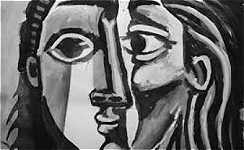
[ "As it was in the days of Lot..." The postmodern dialectic has moved into the phase of metapostmodern nihilism, a world devoid of hope and all possible ontological meaning. This is the whirlwind of despair I've mentioned before in other places, and it is here, now... ]
05.02.24 (Nisan 24, 5784) From the Torah (i.e., parashat Vayera) we read: "And the LORD said, 'The outcry of Sodom and Gomorrah is indeed great, and their sin is exceedingly grave...'" (Gen. 18:20). But what was the sin of Sodom and Gomorrah? Why did God destroy the two cities? Was it because the people there refused to show hospitality to the angelic visitors (as is claimed by some), or was it because of ongoing and escalating sin of the people?
Though the sin of Sodom undoubtedly included the practice of sexual perversion (called "strange flesh" in the Book of Jude), such behavior was symptomatic of a nihilistic culture that glorified violence, despised moral authority and logical truth, and practiced the exploitation of others. Throughout the Scriptures "Sodom" symbolically represents gross immorality, depravity, and inevitable judgment from heaven. For example, the prophet Ezekiel later wrote of Judah: "Behold, this was the guilt of your sister Sodom: she and her daughters had arrogance, abundant food, and careless ease, but she did not help the poor and needy. Thus they were haughty and committed abomination (תּוֹעֵבָה) before me; therefore I removed them when I saw it" (Ezek. 16:49-50). The New Testament refers to the fate of Sodom as "a fearful example of the everlasting fire of retribution" (Jude 1:7) -- the destructive result of spiritual anarchy, lawlessness, deviancy, perversion, and trauma (2 Pet. 2:6-10). Thankfully there is real hope for those who seek to escape from the wrath to come by turning to God and trusting in his healing power of salvation, though it is only a "remnant" that find true deliverance (Matt. 7:14). Speaking of the final salvation of Israel, the Apostle Paul quotes Isaiah: "If the LORD of Hosts hadn't left us a few survivors, we'd be as desolate as Sodom, doomed just like Gomorrah" (Isa 1:9; Rom. 9:29).
In this connection it should be noted that the word "sodomy" involves any form of violence, perversion, exploitation, or lawless expression of sexuality regardless of gender... In general, it is more helpful to think of it as a code word for egregious sin, "in-your-face" spite toward God, defiant immorality that celebrates spiritual anarchy, moral nihilism, and death... Adultery, fornication, sexual perversions, viewing pornography (i.e., the lust of the eyes), covetousness, gluttony, arrogance (idolatry), unbridled anger (rage), sloth, worshiping the things of this world (i.e., fads, trendy TV shows, sports idols, the world's value system), and so on, all may be called "sodomy." Whenever we consider such things, it is better to look at how we are healed rather than what makes us sick.... The answer in every case to the trauma of the sinful heart is to turn to God and ask for deliverance in the name of Yeshua.
The world and its "group-think" always calls for the abolition of individual conscience. Like the people of ancient Sodom that repudiated God's moral authority so that they would be "free" to their indulge their selfish desires and "autonomy," so the world system today repudiates a person of real conviction and conscience. Indeed, the only thing regarded as "intolerable" in the devil's world is the objection that people have the supposed "liberty" to sin in whatever way they please. This godlessness is anathema to one who truly fears God, of course, since tolerating sin in a world ripe for judgment is a cowardly form of "collaboration" with the enemy (James 4:4). "Woe to those who call evil good and good evil, who put darkness for light and light for darkness, who put bitter for sweet and sweet for bitter! Woe to those who are wise in their own eyes, and who are shrewd in their own sight!" (Isa. 5:20-21).
The "original sin," that is, eating from the Tree of Knowledge of good and evil, meant that man sought to transcend God's will to determine what is valuable, true, beautiful, and so on. Man became autonomous, "the measure of all things." Such was the "logical" method of the German idealism of Kant and Hegel, which led to way for Karl Marx, Friedrich Nietzsche, and Adolf Hitler (and some present day politicians) to unleash their nightmares upon the earth. Understand that the deep untruth that lies behind cynical "postmodernism" expresses little more than the godless desire to control the world... Today, more than ever before, the world is like "Sodom," and therefore ripe for judgment from heaven.
And the judgment of God indeed came upon the moral anarchy of that realm... After the angels rescued Lot (and his immediate family), we read "then the LORD rained on Sodom and Gomorrah sulfur and fire from the LORD out of heaven. And he overthrew those cities, and all the valley, and all the inhabitants of the cities, and whatever grew on the ground" (Gen. 19:24-25). The sages note the word translated "overthrew" is vayahafokh (וַיַּהֲפךְ), which means "overturned," suggesting that besides the fire and brimstone that rained down from the sky, an enormous earthquake engulfed the plain, forming a crater filled with salt that became known as the "Dead Sea" (ים המלח).
Hebrew Lesson
Jeremiah 7:14 Reading (click):
Note: If someone were to urge me to declare whether a certain sexual orientation was acceptable (or sinful), I would push the question further back... Before we consider questions of sexual orientation we first must come to terms with questions of theological orientation, and in particular, with the question of whether we will believe that Yeshua is God the Son who redeems humanity from sin... After all, the central concern of life is not with this or that particular sin (since sin reveals the more fundamental problem of "spiritual death") but rather with the question of how can we find true life. How can we be delivered from the sickness of death and God's judgment? What is the meaning and purpose of our lives? How should I live? Everyone is entirely responsible for what they choose to believe and our judgment is to be whatever we make of our lives... In our "postmodern" culture we must start here before we get sidetracked into the "mind games" of identity politics, etc.
 |
Yom HaShoah Podcast...
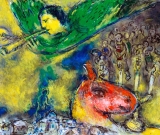
[ Yom HaShoah, or Holocaust Memorial Day, begins Sunday May 5th at sundown and runs through Monday, May 6th until sundown... ]
05.02.24 (Nisan 24, 5784) Shalom chaverim. I made an audio podcast for Yom HaShoah, or Holocaust Remembrance Day (see the link below). In it I discuss some of the philosophical influences that led to the atrocities of the attempted genocide of the Jewish people, including the rise of the wild-eyed idealism of G.W. Hegel and the invidious concept of the "dialectic" that was used to negate the value of the individual in preference to the collective.... Hegel directly influenced Karl Marx and his godless materialism and social revolutionary theories, and in general it may be said that German idealism led both to the nihilism of Friedrich Nietzsche and eventually to the barbarity of Adolf Hitler's national socialism. Though the subject matter is a bit philosophical, I nevertheless hope you will find it helpful.
Sunday May 5th at sundown is
Holocaust Remembrance Day...
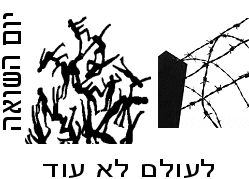
05.01.24 (Nisan 23, 5784) Yom HaShoah, or "Holocaust Remembrance Day," marks Israel's time of commemoration for the approximately six million Jews -- including over a million children -- who perished as a result of the actions carried out by Nazi Germany and its accomplices. It was inaugurated in 1953 and is annually observed on (or about) the 27th day of the month of Nisan, just a few days after Passover Week in the spring. In stark contrast to the celebration of freedom commemorated during Passover, Yom HaShoah marks a very difficult time when we revisit specters of absolute evil and again ask haunting questions about the power and presence of malevolence in our world. Often we are left speechless over the cruelty and depravity of human beings. It all seems so inexplicable, so needlessly horrible, so senseless, so vile... We may feel powerless, despondent, or full of indignation, but still we ask ourselves, how could this have happened? How was all of this possible?
Simply put, the Holocaust was the result of cowardice and self-deception... The systematic, institutionalized, and "politically correct" genocide of the Jewish people was made possible solely because so many others - including nominal "Christians" - forfeited their God-given responsibility to live as authentic individuals by passively surrendering their will to "the crowd." But giving up your identity to join a gang inevitably leads to fragmentation of the soul, potentially inviting in a "legion of demons..." Regardless of whether it's a gang of thugs running an inner city neighborhood, or the pressure to keep quiet over ethical misconduct at your place of work, or the desire to feel "approved" as a good citizen of the state, or even the pressure to conform to a particular religious group, in either case, "losing yourself" in the midst of the crowd is an evasion, a cop-out, and a desecration of the image of God within you. Indeed following the crowd is a form of slavery where you surrender your freedom for the sake of a supposed sense of security... You become self-deceived because you no longer "own" yourself but became the ward of "another." Becoming a member of a crowd makes you into a copy or similitude, a shadow rather than a person of substance.
We must never forget what happened to the Jewish people under Hitler. The Holocaust was made possible because people timidly refused to stand apart from the group to serve as bold witnesses of the truth. And the great risk of our age is the revival of political fascism that attempts to again control, disarm, and violate people's freedom all for the supposed "greater good" of the "state." We must remember that silence in the face of evil is itself evil: "First they came for the communists, and I didn't speak out because I wasn't a communist. Then they came for the trade unionists, and I didn't speak out because I wasn't a trade unionist. Then they came for the Jews, and I didn't speak out because I wasn't a Jew. Then they came for me, and there was no one left to speak out for me" (Martin Niemöller).
This year Yom HaShoah, or "Holocaust Remembrance Day, begins Sunday, May 5th (at sundown) and runs through Monday, May 6th until sundown.
Hebrew Lesson
Zephaniah 1:15b reading (click):
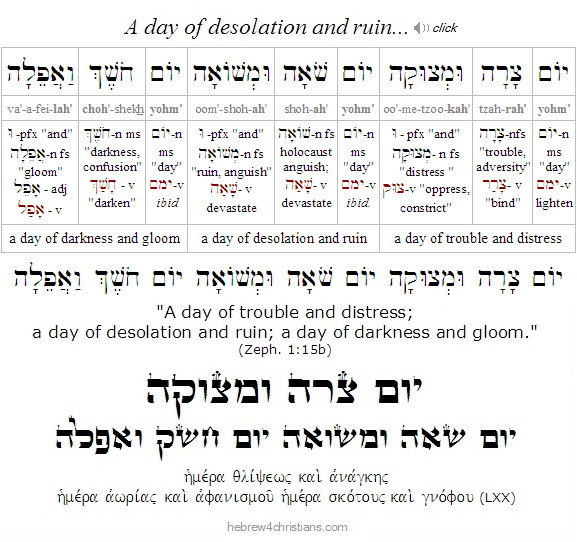 |
As atrocious and appalling as the European Holocaust was for the Jewish people, it would be remiss not to mention the current persecution of Israel and the Jewish people by Hamas ("Islamic Resistance Movement"), Hezbollah, Iran, the Palestinian Authority (the old PLO), and various antisemitic groups around the world. Israel is truly surrounded by enemies!
And we should also remember the earlier genocide of Christians -- mostly Armenians but also Assyrians and Greeks -- that took place under the Islamic Ottoman Empire, throughout World War I, where the Turks systematically massacred approximately 1.5 million Armenians, 300,000 Assyrians, and 750,000 Greeks. Indeed April 24th is recognized (by some) as "Armenian Genocide Remembrance Day." In Yerevan, the capital of Armenia, hundreds of thousands of people walk to the Tsitsernakaberd Genocide Memorial to lay flowers at the eternal flame.
Finally, Christians are also under worldwide persecution and oppression as well. According to the Cato Report, today -- at this time in history -- Christians are the single most persecuted religious group in the world (and that does not include the persecution of Christians in many "democratic" countries such as the United States, Canada, the United Kingdom, and other countries of western and eastern Europe).
For more information see the links listed below.
This Shabbat's Torah:
Acharei Mot - אחרי מות
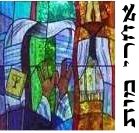
05.01.24 (Nisan 23, 5784) Shalom chaverim. Our Torah portion for the Sabbath following Passover Week is called Acharei Mot (אחרי מות). This portion transitions from the preceding readings regarding ritual purity (i.e., tahora: טָהֳרָה) to revisit the tragic incident of Nadab and Abihu, the two sons of Aaron who were killed when they offered "strange fire" (אֵשׁ זָרָה) upon the Altar of Incense during the dedication of the Tabernacle (see Lev. 10:1-2). Because these priests came close to the Holy of Holies and offered incense in a forbidden manner, the LORD commanded Moses to instruct Aaron that he should enter the innermost chamber only in a carefully prescribed manner once a year - on the tenth day of the seventh month - during a sacred time that would be called Yom Kippur, or the "Day of Atonement." Incidentally, this is the anniversary of the same date that Moses descended from Sinai with the restored tablets of the covenant after Israel was forgiven of the sin of the golden calf...
On this most solemn day, Aaron was commanded to immerse himself in a mikveh (pool of fresh water) and to dress in all-white linen. He then was instructed to slaughter a bull as a personal sin offering. Aaron then brought some ketoret (incense) to burn within the Holy of Holies before returning to sprinkle the blood of the sin offering seven times before the Ark of the Covenant (i.e., the kapporet or "Mercy Seat"). Aaron repeated this procedure using the blood of one of two goats that was selected (by lot) to be slaughtered as a sin offering on behalf of the people. After this, Aaron took more of the sacrificial blood and purified the Altar of Incense and the other furnishings of the Tabernacle. Later, the fat of these sacrifices was burned on the Copper Altar in the courtyard, though the hide and the flesh were to be entirely burned outside the camp.
After purifying the Tabernacle, Aaron went to the gate of the courtyard and laid both hands upon the head of the other goat (designated "for Azazel," a name for the accusing angel) while confessing all of the sins and transgressions of the people. This "scapegoat" was not slaughtered, however, but was driven away into the wilderness, carrying "all their iniquities unto a land not inhabited." Finally, Aaron returned to the Tent, washed and changed his clothes, and offered two more burnt offerings – one for himself and one for the people – to complete the purification process.
This elaborate ritual was ordained to be a decree for Israel, and the day of Yom Kippur was to be observed every year as a time of "affliction and mourning" for all the people. The portion ends with further instructions about making sacrifices, including the prohibition against offering sacrifices apart from the rites of the Tabernacle. The consumption of blood is explicitly forbidden, since blood was reserved for sacrificial purposes upon the altar.
Note: I realize it's a bit odd to be thinking of Yom Kippur and atonement issues immediately after Passover, but of course there is a connection, since the Passover is also about blood atonement for those who are trusting in the Lord God of Israel... Amen.
<< Return
|



















